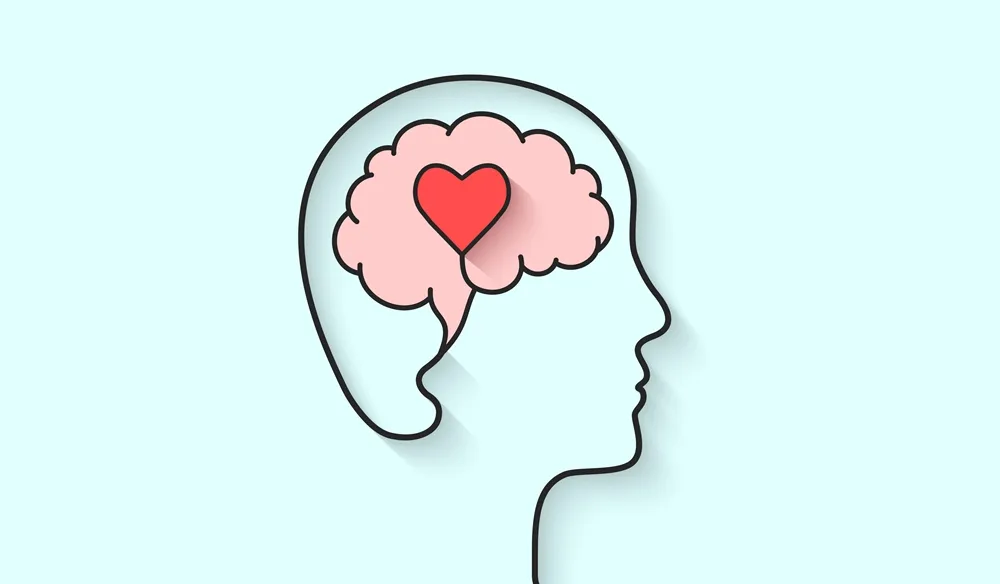Impact of Mental Health on Daily Life
Mental health is an integral part of overall well-being, affecting how we think, feel, and behave in our daily lives. It influences our ability to cope with stress, build relationships, and make decisions. Mental health challenges can significantly disrupt daily routines, professional performance, and social interactions. This article delves into the profound impact of mental health on various aspects of daily life and underscores the importance of maintaining mental well-being for a fulfilling life.
Understanding Mental Health
Mental health encompasses our emotional, psychological, and social well-being. It affects how we handle stress, relate to others, and make choices. Mental health is not merely the absence of mental disorders but also the presence of positive characteristics such as emotional resilience, cognitive flexibility, and a sense of purpose. Good mental health enables individuals to function effectively in daily activities, enjoy fulfilling relationships, and contribute to society.
However, mental health can fluctuate over time due to various factors, including life experiences, biological predispositions, and environmental stressors. When mental health is compromised, it can lead to mental health disorders such as anxiety, depression, bipolar disorder, and schizophrenia. These conditions can profoundly affect an individual’s daily life, from their ability to work and socialize to their physical health.

The Impact of Mental Health on Physical Health
One of the most significant ways mental health affects daily life is through its impact on physical health. Mental health issues are closely linked to physical health problems. For instance, chronic stress, anxiety, and depression can lead to various physical symptoms, including headaches, stomachaches, and fatigue. Over time, these symptoms can evolve into more severe conditions such as hypertension, cardiovascular disease, and a weakened immune system.
Moreover, individuals with poor mental health may struggle to maintain healthy lifestyles. Depression, for example, can reduce motivation and energy levels, making it difficult to engage in regular physical activity, maintain a balanced diet, or adhere to medication regimens. This can create a vicious cycle where poor physical health exacerbates mental health issues, further impairing daily functioning.
Conversely, good mental health promotes better physical health. Individuals with a positive mental outlook are more likely to engage in health-promoting behaviours, such as regular exercise, healthy eating, and getting enough sleep. These behaviours, in turn, contribute to better physical health, creating a positive feedback loop that enhances overall well-being.
Mental Health and Work Performance
The impact of mental health on work performance is profound. Mental health challenges can significantly impair cognitive functions such as attention, memory, and decision-making, making it difficult to perform tasks efficiently. Employees with poor mental health may experience reduced productivity, increased absenteeism, and difficulty managing responsibilities. This can lead to job dissatisfaction, strained relationships with colleagues, and even job loss.
Coping Mechanisms for Mental Health Conditions: A Comprehensive Guide
Anxiety and stress are common mental health issues that can affect work performance. High levels of stress can lead to burnout, a state of emotional, mental, and physical exhaustion caused by prolonged stress. Burnout can manifest as feelings of cynicism, detachment from work, and a lack of accomplishment. It not only affects the individual but also the overall work environment, leading to decreased team morale and productivity.
Depression is another mental health condition that can severely impact work performance. Individuals with depression may struggle with concentration, making decisions, and meeting deadlines. They may also experience feelings of worthlessness or hopelessness, which can further diminish their motivation and engagement at work.
Organizations are increasingly recognizing the importance of mental health in the workplace and are implementing mental health programs to support employees. These programs include mental health awareness training, access to counselling services, and promoting a healthy work-life balance. By fostering a supportive work environment, organizations can help employees maintain good mental health, leading to increased productivity and job satisfaction.
Mental Health and Relationships
Mental health significantly influences the quality of our relationships with others. Poor mental health can lead to communication difficulties, emotional instability, and social withdrawal, all of which can strain relationships with family, friends, and partners.
Individuals with anxiety disorders, for instance, may find it challenging to engage in social activities or maintain close relationships due to fear of judgment or rejection. Social anxiety can lead to isolation and loneliness, further exacerbating mental health issues.
Depression can also have a detrimental effect on relationships. The feelings of sadness, irritability, and lack of interest in activities commonly associated with depression can make it difficult to connect with others. This can lead to misunderstandings, conflicts, and even the breakdown of relationships.
On the other hand, supportive relationships can play a crucial role in maintaining good mental health. Positive social interactions can provide emotional support, reduce stress, and promote a sense of belonging. Building and maintaining healthy relationships requires effective communication, empathy, and understanding, all of which are essential for mental well-being.
It is also important to recognize that mental health challenges do not only affect the individual but also their loved ones. Family members and friends may experience stress, anxiety, and frustration when trying to support someone with mental health issues. This highlights the importance of seeking professional help and utilizing support networks to manage the impact of mental health on relationships.
The Impact of Mental Health on Education
Mental health plays a critical role in the academic success and overall educational experience of students. Mental health challenges can impair cognitive functions such as concentration, memory, and problem-solving, making it difficult for students to perform well academically. Students with mental health issues may struggle with attending classes, completing assignments, and participating in extracurricular activities, all of which are essential components of a well-rounded education.
Anxiety and stress are common mental health issues among students, particularly during exam periods or when facing academic pressures. These conditions can lead to test anxiety, where the fear of failure becomes overwhelming, causing physical symptoms such as nausea, sweating, and palpitations. Test anxiety can impair performance, leading to lower grades and a negative impact on self-esteem.
Depression is another mental health condition that can affect students’ academic performance. Students with depression may experience a lack of motivation, difficulty concentrating, and feelings of hopelessness, all of which can hinder their ability to engage with their studies. In severe cases, depression can lead to school dropout, which can have long-term consequences on an individual’s career prospects and overall quality of life.

Educational institutions are increasingly recognizing the importance of supporting students’ mental health. Many schools and universities now offer mental health services, such as counselling and therapy, to help students manage their mental health challenges. Additionally, promoting a positive school environment, where students feel safe and supported, can help reduce the impact of mental health issues on academic performance.
Mental Health and Daily Routines
Mental health has a profound impact on daily routines and activities. When mental health is compromised, it can disrupt sleep patterns, appetite, and energy levels, making it difficult to maintain a routine. For example, individuals with depression may experience insomnia or oversleeping, both of which can interfere with daily activities such as work, school, and social engagements.
Anxiety can also disrupt daily routines by causing excessive worry and fear. Individuals with anxiety disorders may avoid certain activities or places due to fear of triggering their anxiety. This can limit their ability to engage in normal daily activities, such as going to work, attending social events, or even leaving the house.
Maintaining a routine is essential for mental well-being. A structured routine can provide a sense of stability and predictability, which can help reduce stress and anxiety. Engaging in daily activities such as exercise, healthy eating, and mindfulness practices can also promote mental health by boosting mood, improving sleep, and enhancing overall well-being.
However, it is important to recognize that mental health challenges can make it difficult to maintain a routine. Individuals with mental health issues may need additional support, such as therapy or medication, to help manage their symptoms and maintain their daily routines.
Strategies for Maintaining Mental Health
Maintaining good mental health is essential for a fulfilling life. There are several strategies that individuals can use to promote mental well-being and manage the impact of mental health challenges on daily life.
- Regular Physical Activity: Exercise is one of the most effective ways to improve mental health. Regular physical activity can help reduce stress, anxiety, and depression by releasing endorphins, the body’s natural mood enhancers. Exercise also promotes better sleep, which is essential for mental well-being.
- Healthy Diet: A balanced diet can have a significant impact on mental health. Nutrient-rich foods such as fruits, vegetables, whole grains, and lean proteins can help improve mood, increase energy levels, and enhance cognitive function. Conversely, a diet high in processed foods, sugar, and unhealthy fats can contribute to poor mental health.
- Adequate Sleep: Sleep is crucial for mental health. Lack of sleep can lead to irritability, difficulty concentrating, and increased stress levels. Establishing a regular sleep routine, creating a comfortable sleep environment, and avoiding stimulants such as caffeine before bedtime can help improve sleep quality.
- Stress Management: Chronic stress is a major contributor to mental health issues. Learning effective stress management techniques, such as deep breathing, meditation, and time management, can help reduce stress and promote mental well-being.
- Social Connections: Building and maintaining strong social connections is essential for mental health. Positive relationships provide emotional support, reduce feelings of loneliness, and promote a sense of belonging. Engaging in social activities, volunteering, and reaching out to friends and family can help strengthen social connections.
- Mindfulness and Relaxation Techniques: Mindfulness practices such as meditation, yoga, and deep breathing can help reduce stress, anxiety, and depression by promoting relaxation and self-awareness. Incorporating these practices into daily routines can improve mental well-being and enhance overall quality of life.
- Professional Help: Seeking professional help is crucial for managing mental health challenges. Therapy, counselling, and medication can provide effective treatment for mental health disorders and help individuals manage their symptoms. It is important to seek help early to prevent mental health issues from worsening.

Mental health is a critical aspect of overall well-being that influences every part of daily life. Poor mental health can affect physical health, work performance, relationships, education, and daily routines, leading to a diminished quality of life. However, by adopting healthy lifestyle habits, building strong social connections, and seeking professional help when needed, individuals can maintain good mental health and lead fulfilling lives.
Investing in mental health is not only beneficial for individuals but also for society as a whole. A mentally healthy population is more productive, creative, and capable of contributing to the community. Therefore, it is essential to prioritize mental health and take proactive steps to protect and promote it in our daily lives.
Mastering Personal Budgeting: Tips and Strategies to Take Control of Your Finances




Post Comment